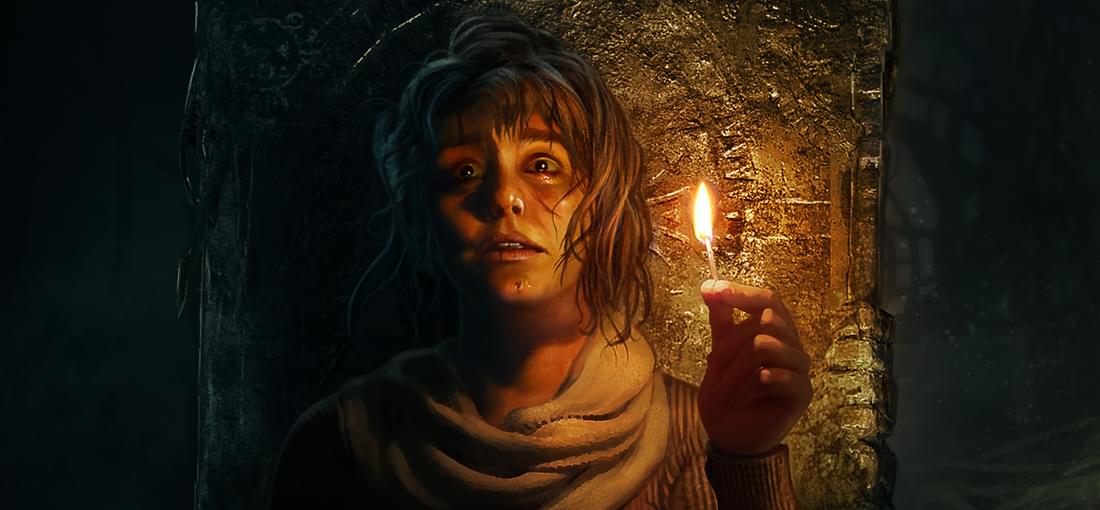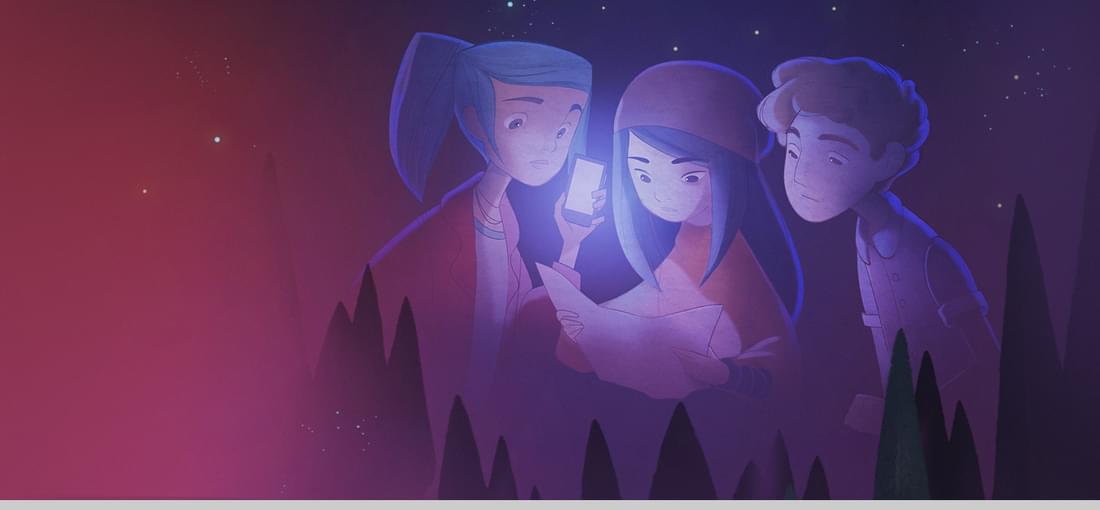


I don't remember the first thing about TDD; judging by many other reviews, I probably enjoyed Rebirth more because of that. I do remember What Remains of Edith Finch, which seems an outlandish reference when discussing the second Amnesia, but it did make me accept mothers talking to their unborn children as a narrative device. Some frequent complaints seem to matter less if you approach this as a narrative game about motherhood, loss, responsibility, seen through a survival horror lens. I'm not sure if these topics are still particularly fresh in 2020- this won't challenge your view of reality like SOMA did, but not every game has to. Not all criticisms go away by assigning the game a different genre. A:R wants you to uncover about four different pasts at the same time, and while I liked the varied ways in which all that content is delivered (the pencil drawings in particular), there are definitely moments when you're like, shut up and let me play. Also, while the fact that you can't die can be explained from the narrative, I would have liked the monster encounters to be a little more relevant at times (not counting the monsters that know you by name). I liked the visuals - there's a lot of imaginative locations waiting beyond the desert overworld - and I was amazed that it ran fluently on my 2013 PC, though no doubt it looks even better on modern systems. Different from other reviews, I also liked the light mechanics. No groping around in total darkness like in Outlast (1 at least), but a pale purplish light that leaves Tasi time to move before she goes cataleptic. If you take the time to look around, there's really no shortage of matches, mounted lights and lantern oil. On the whole, I feel it's best to judge this game on its own merits. It's not TDD, it's not SOMA, it's not a groundbreaking masterpiece- it's a good narrative game, with a lot of story to uncover, with some scary and some emotional moments. Perfect for a dark autumn weekend, simple as that.

"When I was younger, I could remember anything, whether it had happened or not..." Five youths spend a night alone on an island. What starts out as a somewhat lame beach party goes horribly wrong when they unwittingly awaken the ghost of a WWII tragedy. Never heard a plot like that before, right? Honestly, it was the pretty visuals that made me buy this, walking those tiny characters through those surreally beautiful landscapes. But it's actually a great narrative game all around. In response to another review, the conversation system is the best part of the game in my opinion. One to three speech bubbles appear over Alex's head. When a response or decision is expected of her, the bubbles stay on the screen, but if she's just going to voice an opinion or make some clever remark, they will fade, indicating that the right moment has passed, the conversation has moved on. Don't you ever wish you had thought of that witty one-liner two seconds sooner? Like this, the game really keeps you on your toes: You start talking as Alex without knowing the first thing about her. You really create her by being her, discovering her and everyone's story as you tell it through her mouth. At the same time, you have to keep up with the general repartee and define your place in a heterogeneous group of friends. Though most of the dialogue choices seem inconsequential, I restarted the game five times in the first hour to get what I felt was the best possible Alex- but in the absence of savegames, you eventually just have to live with who you are and keep going. While this all sounds like coming-of-age commonplaces, it ties in beautifully with the outer plot: One fatal miscommunication decades ago set all of it into motion. Can Alex, equipped with her trusty pocket radio, open the literal and figurative doors to fix the dialogue choice another radio-woman made in the distant past? Most dialogue choices in life are inconsequential, too, but you don't know which until at least some part of that game is over. Can Alex use the mysterious time loops they encounter to fix some of her own unadmitted guilt, clicking the right speech bubbles for her former self? Oxenfree is not Dear Esther (the tentative link here being that both are short, largely linear games set on lonely islands with comm towers, focused on reaching out to the past), but while its attempts at youthful banter may occasionally seem a bit strained, it does pack a surprising amount of substance into an entertaining teen-mystery shell. (I feel the current full price is justified too, not least with the beautifully drawn graphics and the huge amount of voice acting.)